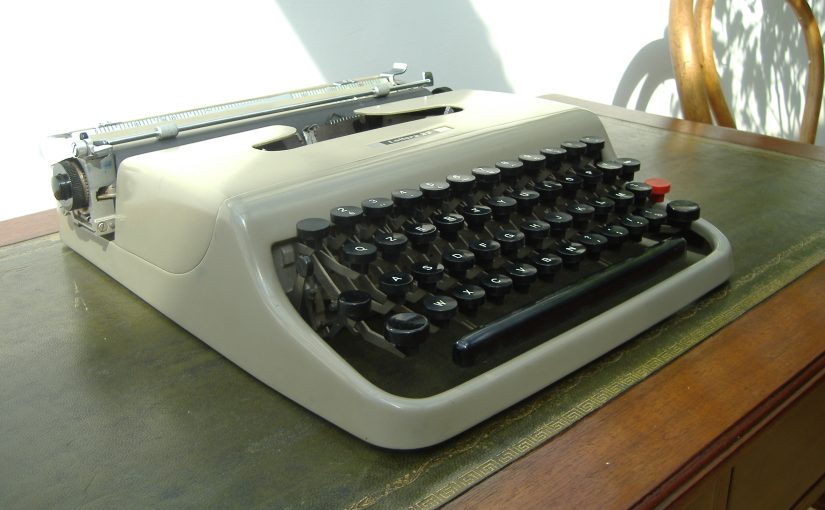Once upon a time there was a swanky posh Lahndahn nightclub called Tramps. I never went there and this isn’t about that anyway. Sorry.
For anyone left, it’s about George Orwell and Pulp. If you have any familiarity with either then you can probably guess the rest.
Somehow inexplicably I sort-of missed Pulp. They started in 1978, which was pretty much when my adult story started too, then as Wikipedia puts it, throughout the 1980s struggled to find success. Still, enough about me. Then after slogging away at it for all what must have felt like forever, they released Common People.
Flashback scene of fourteen and fifteen year-old me reading Down & Out In Paris and London, then a little later, The Road To Wigan Pier. For reasons that were never made clear, I had a taste for books like that. Maybe it came from Jack Kerouac, who in my own view at least cemented my cred credentials because a) it was like, the real thing, man, he’d been there. b) Pretty much nobody in my hometown of Trowbridge had heard of him c) Ultra-cred points: he had a name that caught out people who didn’t like, you know, know. I don’t see what more I could have asked for in a teenage muse. Either which way, all of Kerouac’s stuff was about bums, in a way that Razzle and the more usual teenage publications somehow just weren’t. Even Playboy’s extensive exposure of American bums didn’t treat them the way Kerouac did.
Narcissus Und Goldmund was even more seminal, but in a different way to the stuck-together pages of Fiesta. I thought at the time that was the kind of thing fifteen year-olds were supposed to be reading: two monks are best mates, one gets off with a gypsy, realises he’d better leave the monastery before he’s kicked out, goes wandering, becomes a carver, gets off with the wrong person again, runs back to the monastery, emotional reunion, deep spiritual element and all that blah. OK, so not exactly like life in Trowbridge, but enough to resonate. Goldmund needed to wander but he also needed to return. I read the Earth Mother part of it keenly; It was a big thing back then, at least in Wiltshire. Meanwhile, I had a hugely problematic relationship with my real-life mother of a kind that I never found anyone writing about.
Down & Out was about a real-life safari Eric Blair made in the 1930s, leaving his Mummy and Daddy’s house in Southwold to spend some time, in the words of a girl who knew him then and there, ‘pretending to be a tramp.’ My initial reaction to Down & Out was fascination, which rapidly changed to if not contempt, then definitely a sense of wonder. Contrary to the kind I’d guess Orwell was aiming for, I wondered why he’d done it. I didn’t know about his sort-of girlfriend’s reaction for another thirty years or so. But then, there’s not much in the text of Kerouac’s stuff -where our hero spends most of his time in flop-houses, hitch-hiking, drinking and listening to cool jazz when he’s not bumming around America idolizing junkies or looking for forest fires – about ‘and then I went back to my Mum’s for a bit.’
I heard Common People a few days ago and along with I’m Mandy, Fly Me, it’s stuck in my head ever since. Back when songs used to tell a story, long before the format of three lines repeated twelve times and five “song-writers” to achieve even that, the story was about a rich girl who wanted to do what common people do, somewhat to the surprise of the singer. The central conceit among all these cultural references is the same – you can take the kid out of a moneyed background, but you can’t take the moneyed background out of the kid.
OK, Orwell and Kerouac didn’t have mobile phones, unlike the latest model the latest model in Common People undoubtedly did, but the issue is the same: Think this is uncomfortable? Make a phone call and it’ll stop. The whole ‘look what I endured, just like these – let’s say it – Common People categorically is not what they endure at all.
Never live like common people Never do what common people do Never fail like common people You'll never watch your life slide out of view And then dance and drink and screw Because there's nothing else to do
Jarvis Cocker, who wrote the song, said at the time “it seemed to be in the air, that kind of patronising social voyeurism… I felt that of Parklife, for example, or Natural Born Killers – there is that noble savage notion. But if you walk round a council estate, there’s plenty of savagery and not much nobility going on.”[8]
I lived on one for six years, dear reader. I didn’t see much savagery, to be honest, but it wasn’t a fun place and I think Pulp had the better point. Being poor isn’t quaint or noble or brave. It’s not even mostly about money. It leaves a lasting fear that really, that’s what life is all about. Not in the manner of a jolly earnest 1930s reformist putting-down his pipe and exclaiming “And thet is what life is all about, comrade!” More in the sense that the fear never goes; life is like that in the sense that it’ll wait, but it won’t have to wait for ever before it calls you back. The fear that one day it’ll come back and dancing, drinking and screwing won’t be an option by then, whatever your old Master at Eton used to say.


